The final of the 32nd Debate
Competition of Renmin University of China (RUC) was held on November 30 in
Mingde Hall, with the School of International Studies and the School of Public
Administration and Policy competing for championship.
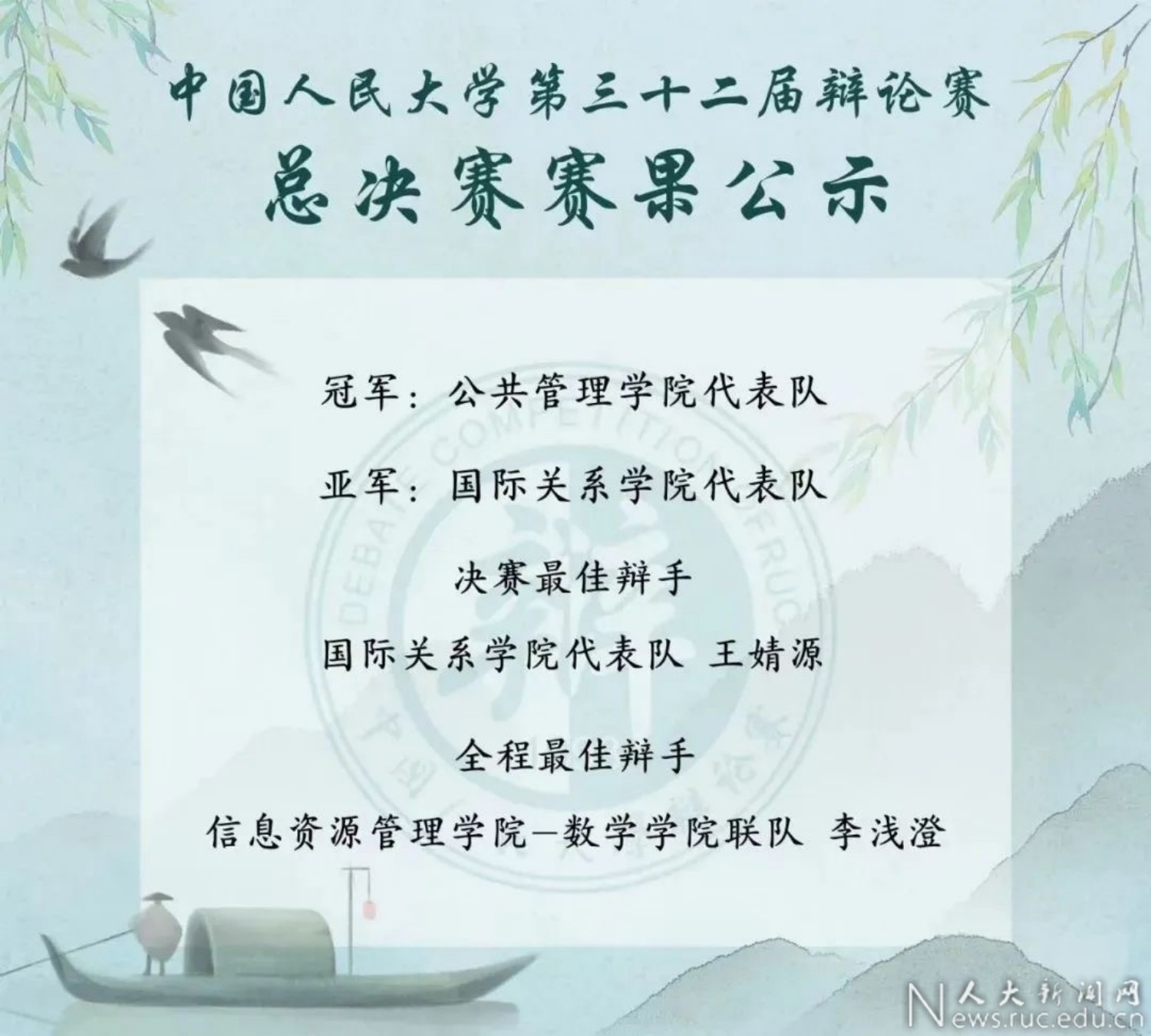
After engaging in a heated debate on the
topic “People’s cognitive gap widens/narrows in the information age”, the
School of Public Administration and Policy secured championship, while the
School of International Studies won the runner-up title.
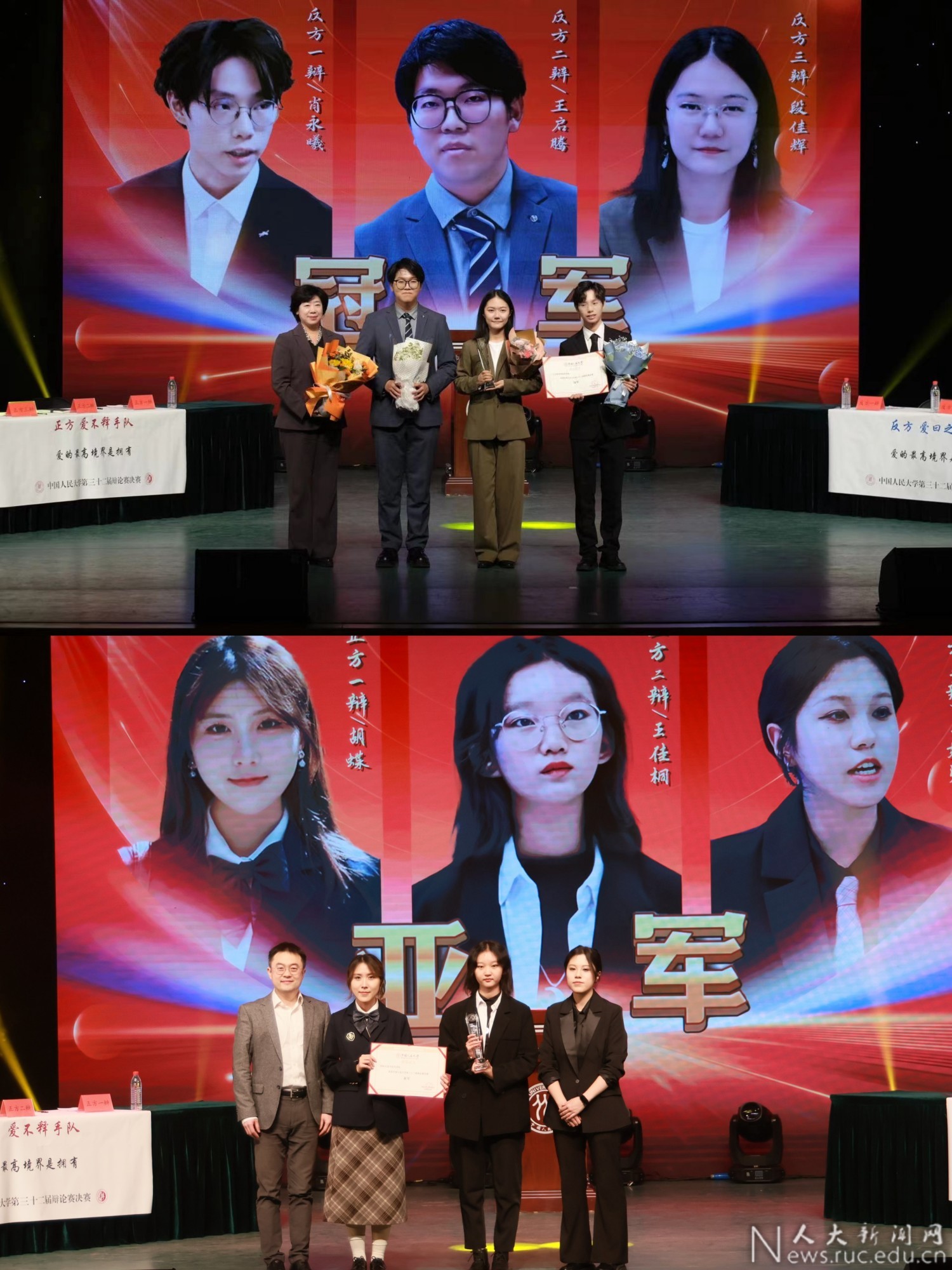
The atmosphere of the final debate was
intense, with frequent rounds of applause and cheers from the audience. Outside
the venue, the live stream attracted 88,405 viewers, receiving over 170,000
likes and more than 2,000 bullet comments.
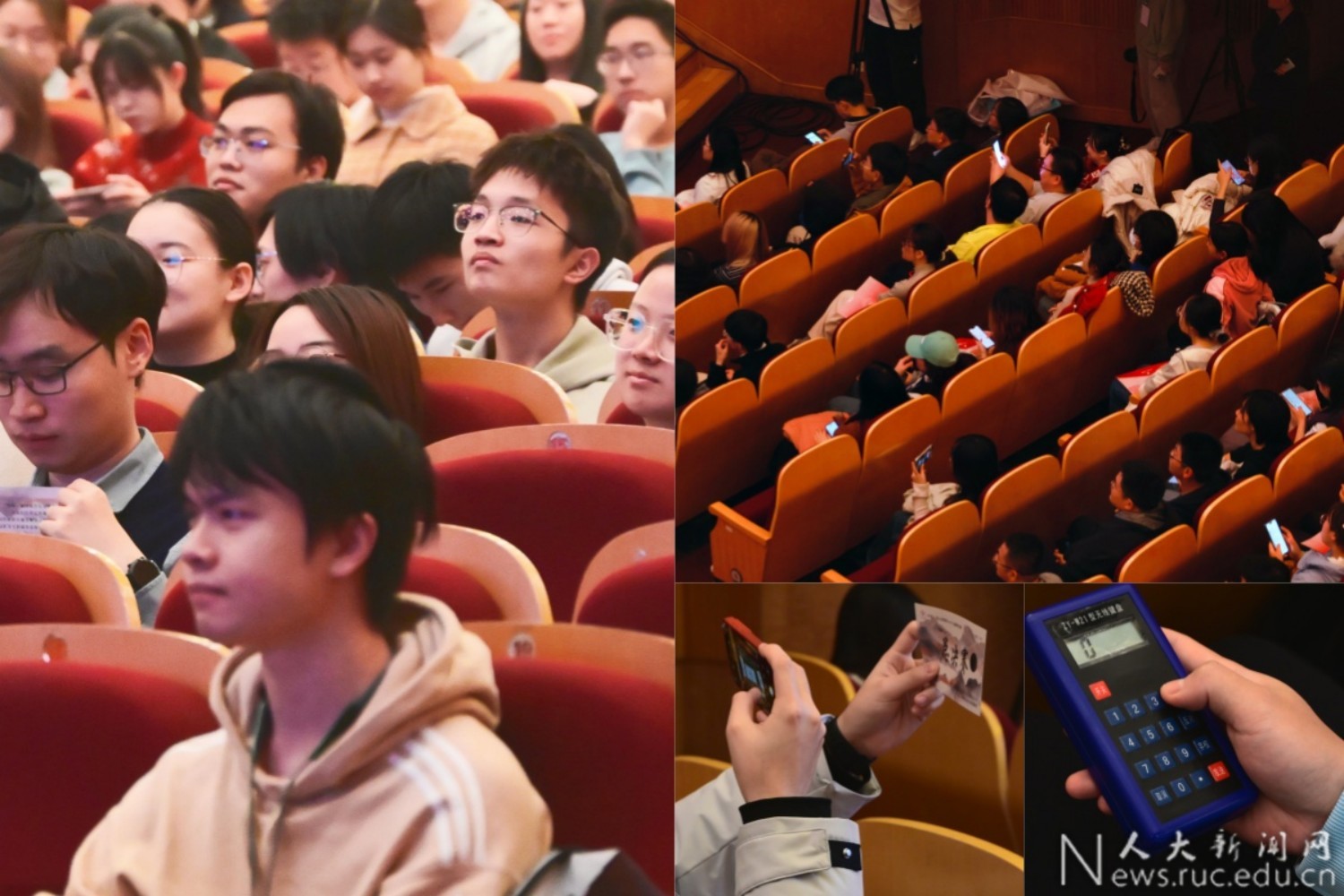
During the debate, the proposition team
from the School of International Studies argued that the cognitive gap in the
information age is widened due to biases in information dissemination, unequal
access to information, and individual cognitive differences.
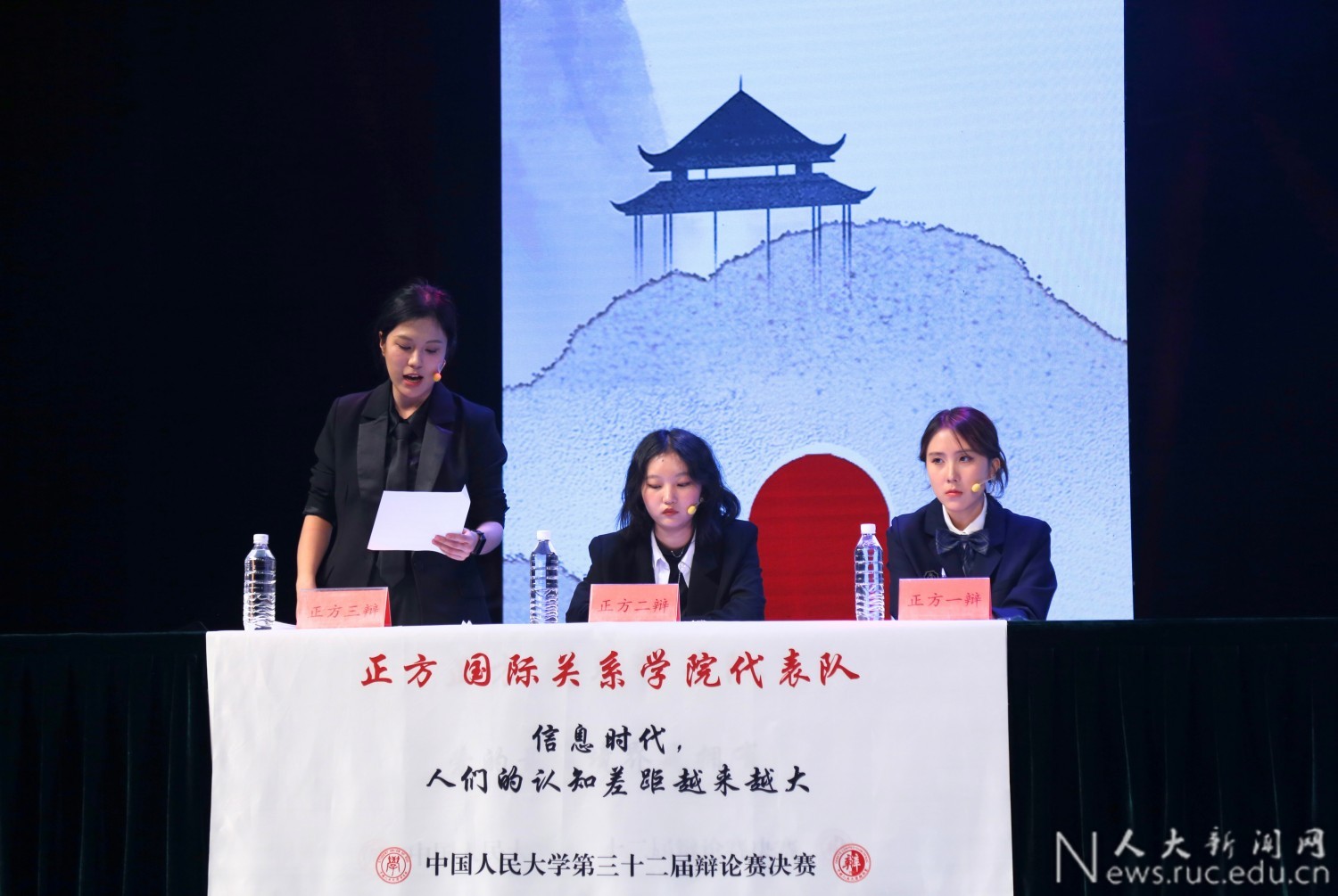
Meanwhile, the opposition team from the
School of Public Administration and Policy argued that in the context of
globalization, the flow of information and the dissemination of knowledge supported
by advanced technologies have narrowed the cognitive gap.
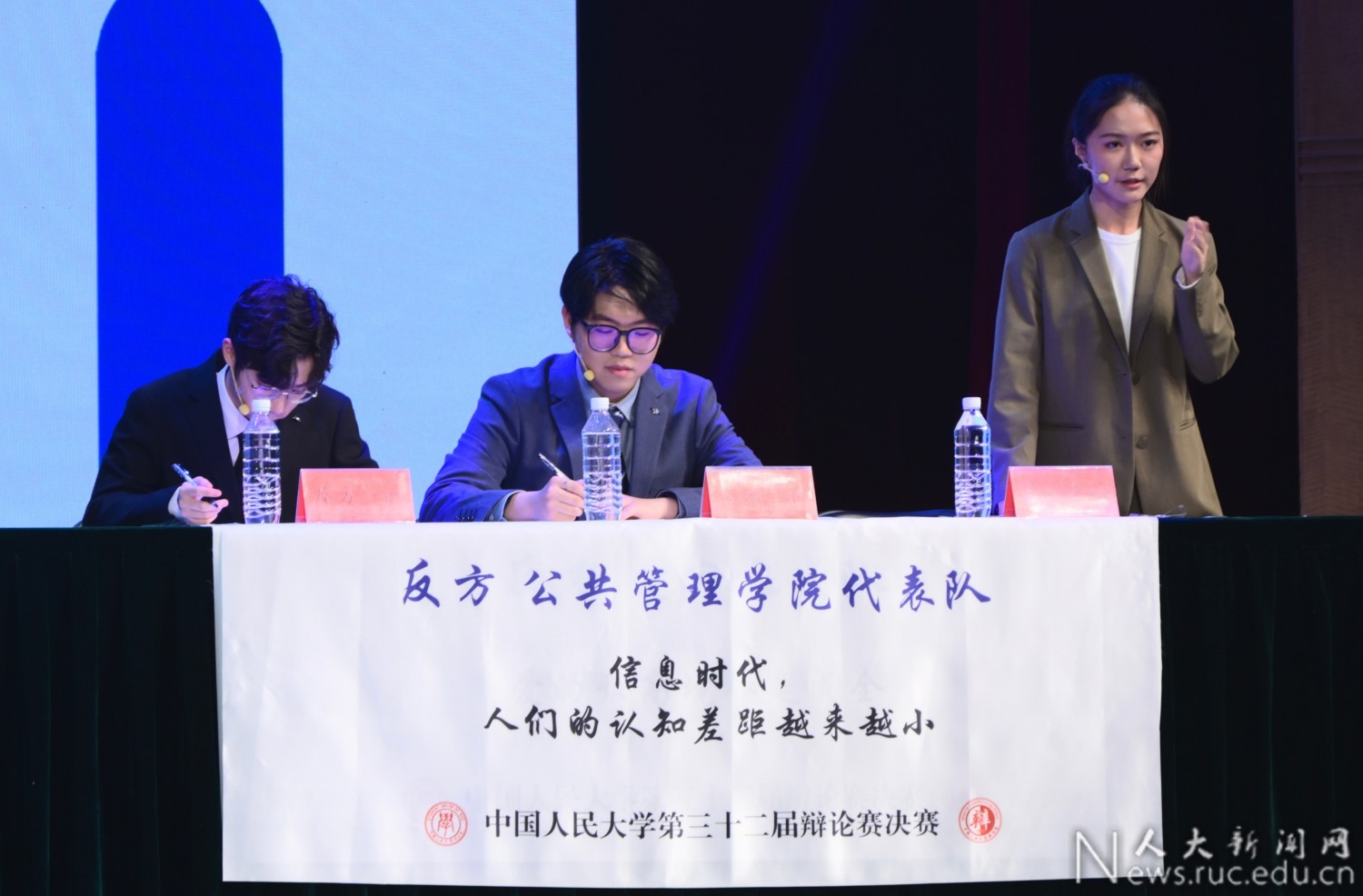
During the interactive session, Judge Jiang
Zhenyu emphasized the importance of discerning the quality of information in
the information age due to its uneven production. He stressed that bridging
cognitive gaps should not be the ultimate goal, but rather achieving a healthy
consensus is key. Jiang also advised students to master information, leverage
the advantages of the digital age, and enhance their information literacy and
connection with society.
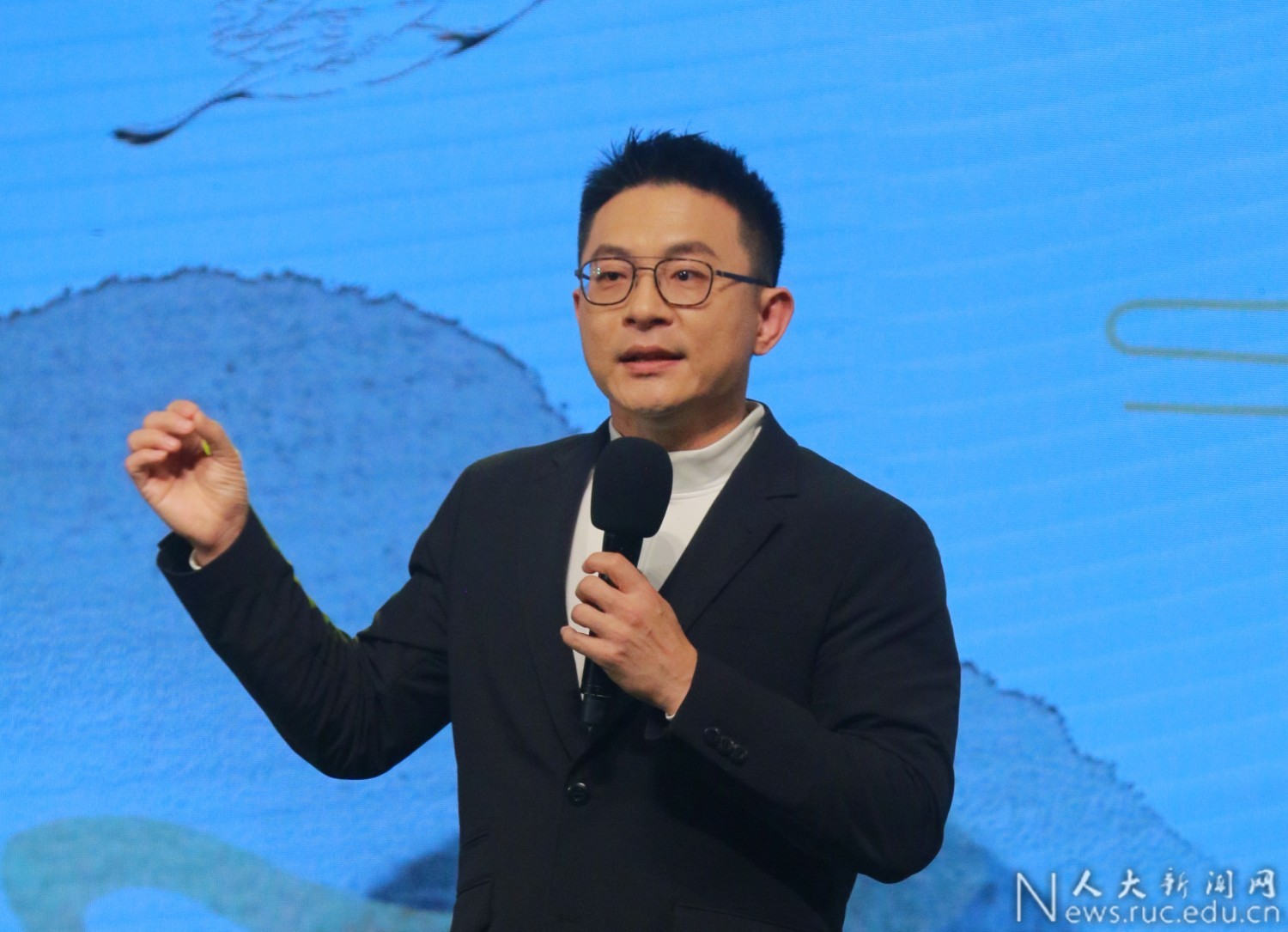
In the commentary session, Professor Fan Ju
from the School of Information discussed the the proposition team’s “information
cocoon” argument, explaining its mechanisms and limitations. He also
highlighted how information technology professionals aim to reduce inequality
and the digital divide, referencing the opposition team’s “information equality”
argument. Fan also encouraged students to strengthen their autonomy and
initiative amid rapid AI development.
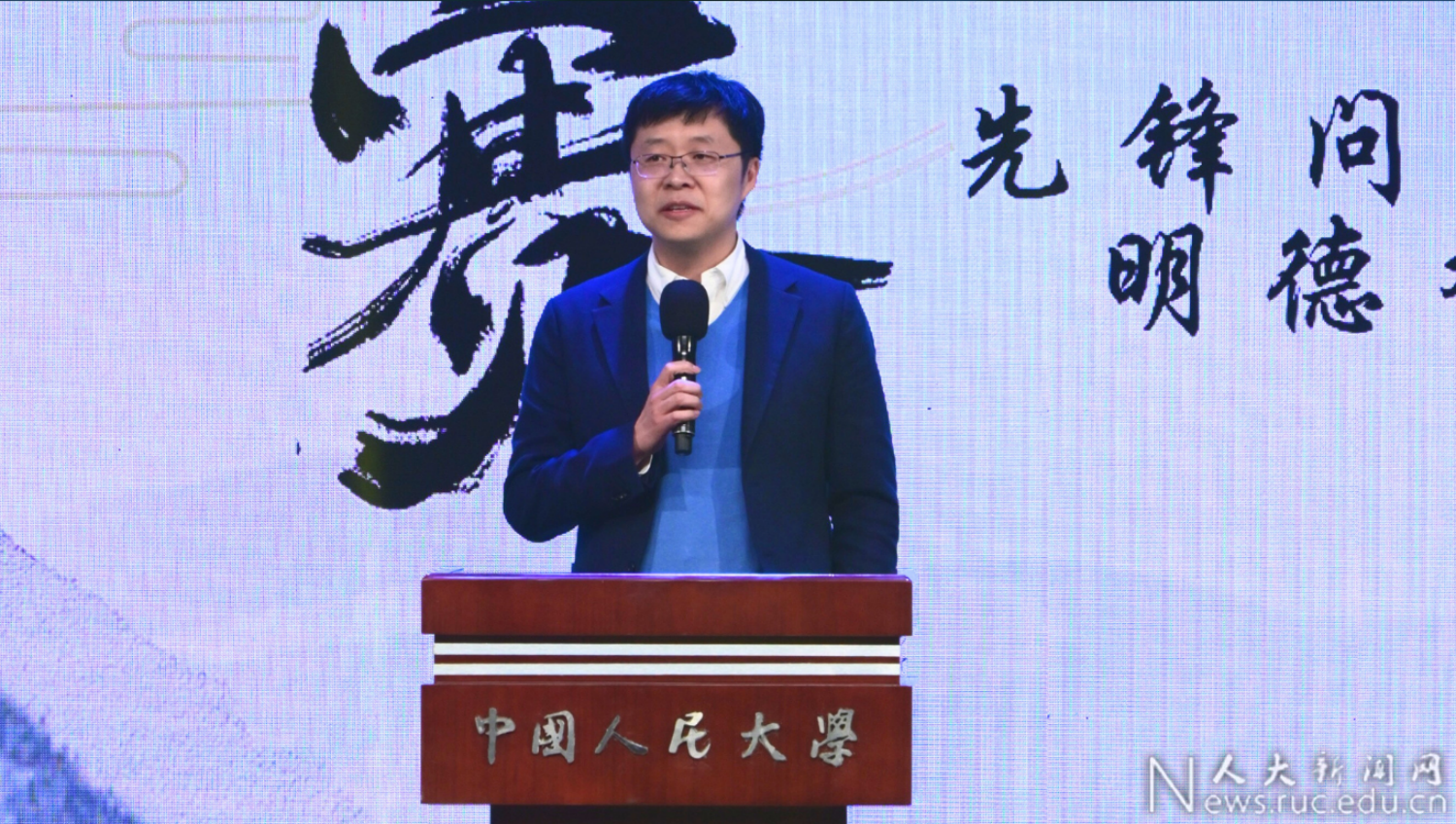
Professor Liu Wei from the School of
Philosophy summarized the debate, evaluating both teams on their argument
depth, data, case preparation, internal logic, and responses. Liu noted the
strengths and weaknesses of both sides and concluded with a quote from Gorgias:
“Answer your opponent’s earnest with a jest and his jest with earnest”.
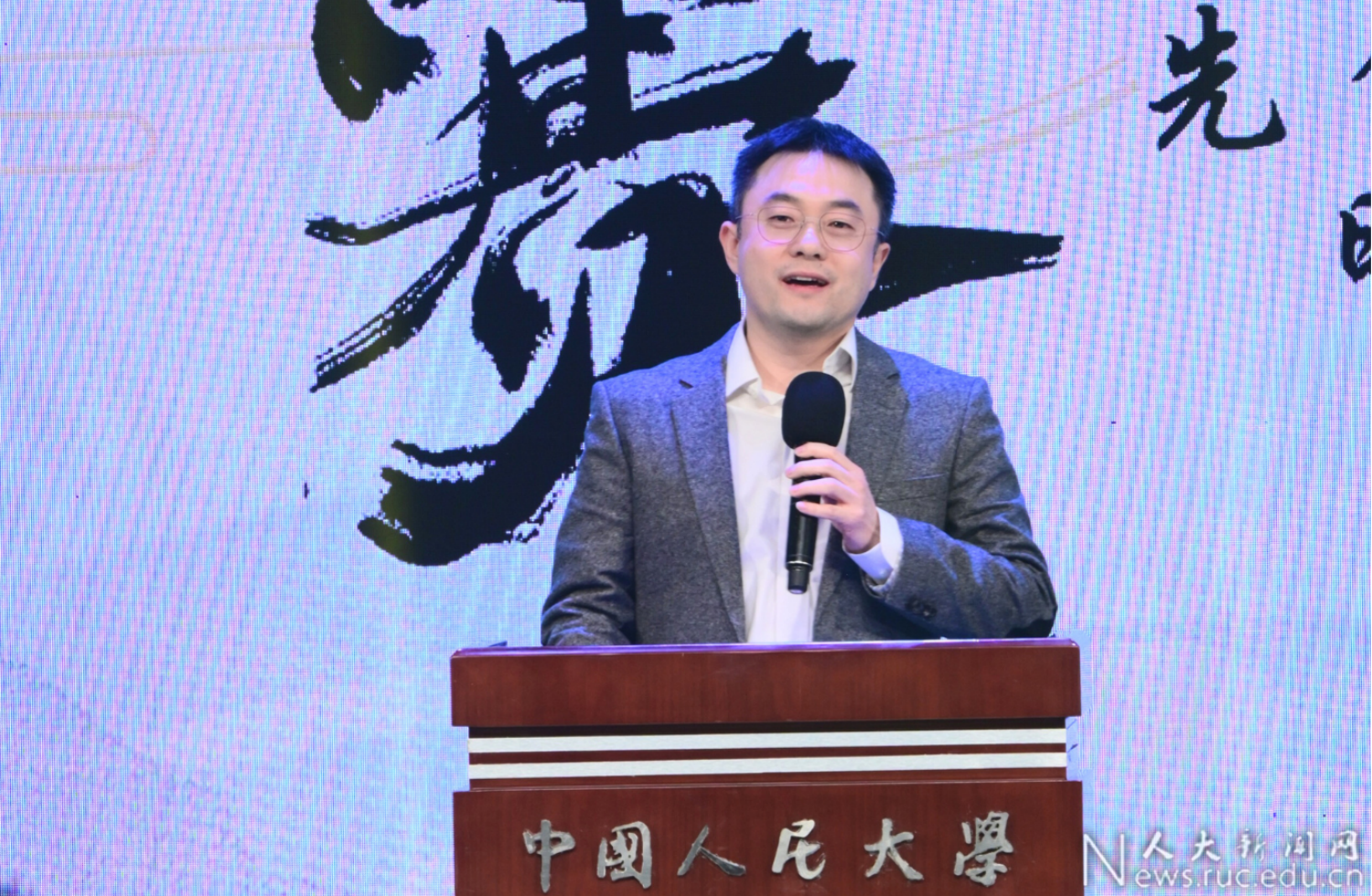
In the exhibition match, debaters from RUC Zongheng Debate Society and Peking University’s
Student Debate Association engaged in a brilliant debate around the topic, “The
highest form of love is to possess/to set free”. The witty and humorous
exchange demonstrated the high-level debating skills of the two universities.
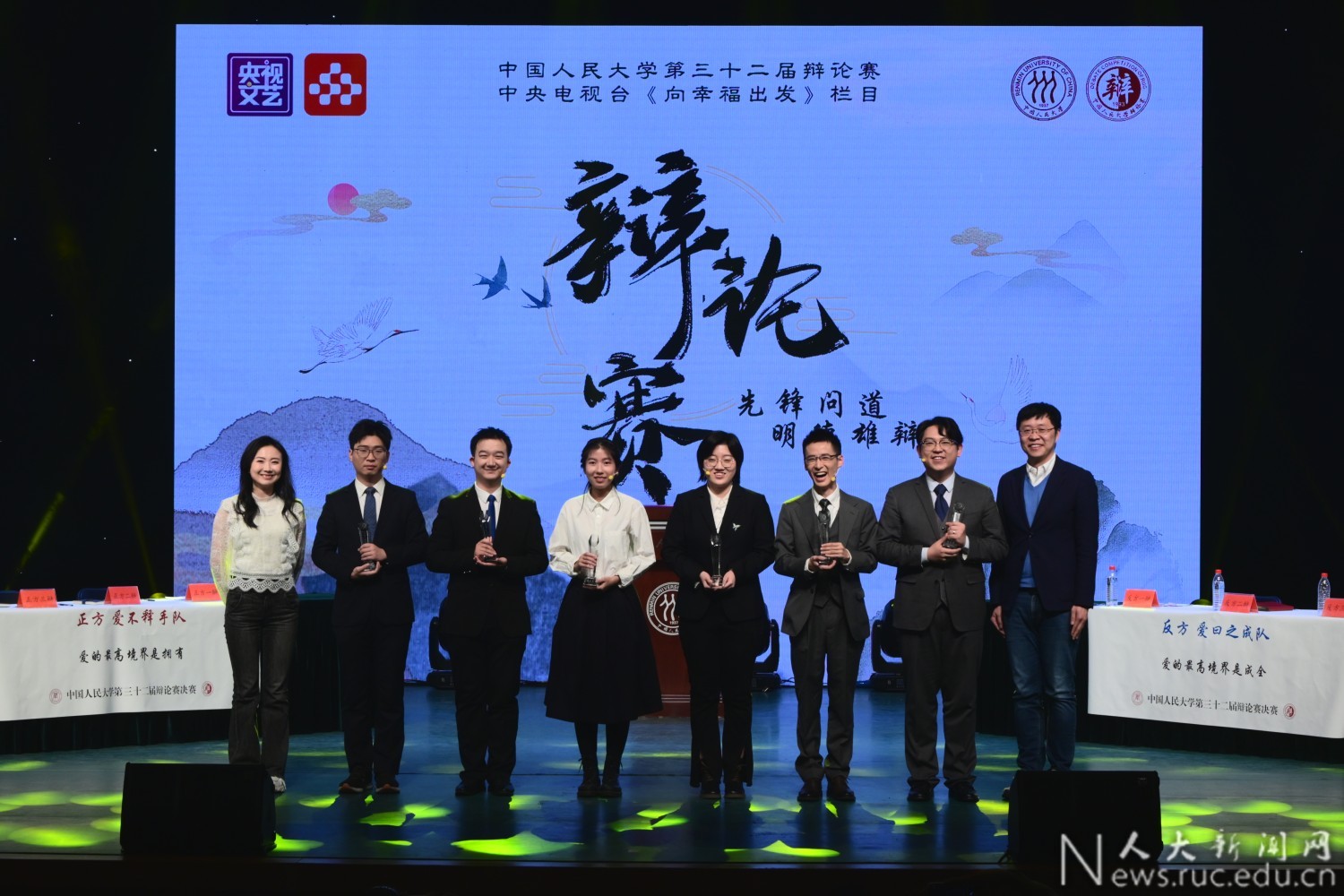
To enhance its inclusiveness, innovation, and relevance, the 32nd Debate Competition introduced a new topic selection model: “public collection + committee recommendations + organizer supplements.” A total of 306 topics were gathered, with 196 (64%) from students, alumni, and the public, 47 (16%) from the Debate Committee, and 62 (20%) from the organizing committee, based on international debate topics.
The topic collection process encouraged grassroots youth organizations, students, and the broader youth community to focus on social changes and personal growth, and the selected debate topics sparked reflection and provided valuable guidance for youth consensus.
From the group stage to the final, the 32nd Debate Competition featured 30 matches, with 295 debaters from 23 teams
representing 27 schools, showcasing youthful ambition and boldness. The
competition also attracted thousands of audience members on and offline, and
received over 60,000 clicks, integrating campus debate culture into the broader
system of independent talent cultivation.


